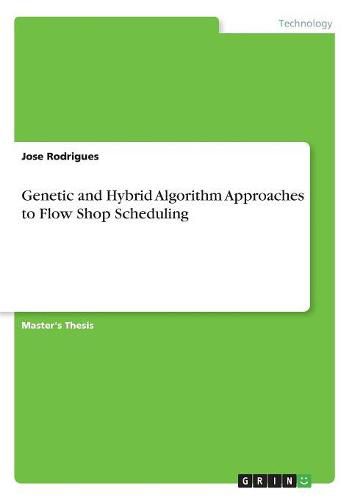Readings Newsletter
Become a Readings Member to make your shopping experience even easier.
Sign in or sign up for free!
You’re not far away from qualifying for FREE standard shipping within Australia
You’ve qualified for FREE standard shipping within Australia
The cart is loading…






This title is printed to order. This book may have been self-published. If so, we cannot guarantee the quality of the content. In the main most books will have gone through the editing process however some may not. We therefore suggest that you be aware of this before ordering this book. If in doubt check either the author or publisher’s details as we are unable to accept any returns unless they are faulty. Please contact us if you have any questions.
Master’s Thesis from the year 2016 in the subject Engineering - Mechanical Engineering, grade: 5, Tallinn University (Department of Mechanical and Industrial Engineering - Chair of Production Engineering), course: Industrial Engineering and Management, language: English, abstract: Flow shop scheduling encompasses allocating a number of jobs in a previously ordered set of machines so that a determined objective function such as makespan is either minimized or maximized. Despite the apparent simplicity of the problem, there is no known non enumerative polynomial time algorithm capable of solving this type of optimization, except for in those cases that can be treated by the Johnson’s algorithm or proportional flow shops. Indeed, understanding flow shop scheduling is proven to be mathematically intractable in the vast majority of cases. Considering this nature of flow shop scheduling, the primary objective of this dissertation was to develop algorithms capable of mitigating the computational burden associated with the problem. In this realm, three solutions were proposed. The first approach refers to a genetic algorithm that employed discrete event simulation and customized genetic operators as a means to eliminate the evaluation of unfeasible solutions and incorporate problem-specific knowledge. The second and third proposed solutions consisting of hybrid methods that have improved the aforementioned framework by including local search. Computational experiments that used the Kaplan-Meier estimator to evaluate the performance of the algorithms demonstrated that the hybrid versions were able, at a worst-case scenario, to achieve exact results by investigating no more than six percent of the total number of feasible schedules. Granted that the evidence gathered so far suggests that the hybrid versions of the proposed algorithms managed to substantially reduce the onus associated with the factorial complexity of the flow shop scheduling problem, expanding the framework
$9.00 standard shipping within Australia
FREE standard shipping within Australia for orders over $100.00
Express & International shipping calculated at checkout
This title is printed to order. This book may have been self-published. If so, we cannot guarantee the quality of the content. In the main most books will have gone through the editing process however some may not. We therefore suggest that you be aware of this before ordering this book. If in doubt check either the author or publisher’s details as we are unable to accept any returns unless they are faulty. Please contact us if you have any questions.
Master’s Thesis from the year 2016 in the subject Engineering - Mechanical Engineering, grade: 5, Tallinn University (Department of Mechanical and Industrial Engineering - Chair of Production Engineering), course: Industrial Engineering and Management, language: English, abstract: Flow shop scheduling encompasses allocating a number of jobs in a previously ordered set of machines so that a determined objective function such as makespan is either minimized or maximized. Despite the apparent simplicity of the problem, there is no known non enumerative polynomial time algorithm capable of solving this type of optimization, except for in those cases that can be treated by the Johnson’s algorithm or proportional flow shops. Indeed, understanding flow shop scheduling is proven to be mathematically intractable in the vast majority of cases. Considering this nature of flow shop scheduling, the primary objective of this dissertation was to develop algorithms capable of mitigating the computational burden associated with the problem. In this realm, three solutions were proposed. The first approach refers to a genetic algorithm that employed discrete event simulation and customized genetic operators as a means to eliminate the evaluation of unfeasible solutions and incorporate problem-specific knowledge. The second and third proposed solutions consisting of hybrid methods that have improved the aforementioned framework by including local search. Computational experiments that used the Kaplan-Meier estimator to evaluate the performance of the algorithms demonstrated that the hybrid versions were able, at a worst-case scenario, to achieve exact results by investigating no more than six percent of the total number of feasible schedules. Granted that the evidence gathered so far suggests that the hybrid versions of the proposed algorithms managed to substantially reduce the onus associated with the factorial complexity of the flow shop scheduling problem, expanding the framework